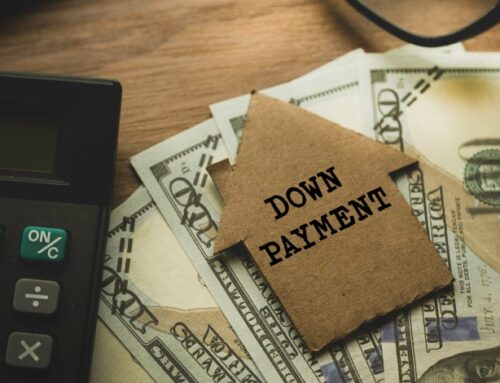When money is tight, deciding which bills to pay first can feel overwhelming. Between rent, utilities, credit cards, groceries, and more, it’s easy to feel like your paycheck disappears before you’ve had a chance to breathe. Whether you’re navigating a temporary financial setback or working toward long-term stability, setting clear financial priorities is key.
The good news is that you don’t have to be a financial expert to get started. With a little structure and some honest reflection, you can create a plan that supports your basic needs, helps protect your credit, and puts you on a path toward less stress and more control.
Let’s walk through practical tips for prioritizing your monthly expenses, organizing your spending with budget categories, and starting to tackle debt when you’re ready.
1. Start with Your Essentials
Before you dive into numbers or spreadsheets, take a moment to think about what you must pay to protect your home, health, and ability to earn an income. These are your non-negotiables and should form the foundation of your priority budget.
Essentials include:
- Housing (rent or mortgage)
- Utilities (electricity, water, gas)
- Groceries (not dining out, but core food items)
- Transportation (gas, car payment, insurance, or public transit)
- Healthcare (insurance premiums, prescriptions, co-pays)
Covering these categories helps you maintain a safe and stable environment. Missing payments in these areas can cause serious disruptions, like losing housing or being unable to get to work.
To help yourself, list out these essentials with their due dates and amounts. Even just seeing it on paper can make it feel more manageable.
2. Understand the Consequences of Missed Payments
Once your basic needs are covered, the next step is identifying bills with financial consequences if unpaid. This includes:
- Credit cards: Missing minimum payments can hurt your credit score and lead to late fees.
- Auto loans: Late payments can result in repossession or added interest.
- Student loans: Some federal loans offer deferment or income-driven repayment options, but interest may still accrue.
If you’re deciding between paying off a store credit card or your electric bill, consider which one would affect your life more immediately. But once the essentials are safe, focus on what can impact your credit score or lead to penalties. Protecting your credit today can open doors to better interest rates and borrowing options in the future.
Not sure what’s most urgent? Reach out to creditors or service providers. Some offer hardship plans, payment extensions, or assistance programs.
3. Organize Your Spending with Budget Categories
How could having budget categories help you prioritize your money? Think of them as mental folders for your finances. They help you see where your money goes., and where it should go.
Common budget categories include:
- Housing
- Utilities
- Groceries
- Transportation
- Insurance
- Debt Payments
- Savings
- Entertainment
- Subscriptions
- Dining Out
By sorting your expenses into categories, you can identify areas where spending can be reduced. For example, if your entertainment category is creeping up but you’re behind on your car payment, that’s a clear signal of where to make a change.
Budgeting apps like Mint, YNAB (You Need a Budget), or simple spreadsheets can help you track and adjust your categories.
4. Follow a Budget Priority List Example
Every person’s needs are unique, but a general budget priority list example can provide a useful starting point. Here’s how you might rank your expenses:
- Housing (rent/mortgage)
- Utilities (electric, water, gas)
- Groceries
- Transportation
- Insurance premiums (health, auto, home)
- Minimum debt payments (credit cards, loans)
- Childcare/family obligations
- Medical needs not covered by insurance
- Emergency savings
- Other savings goals (retirement, future travel)
- Discretionary expenses (entertainment, subscriptions)
If you’re behind on payments, focus on the top items. Once your must-pays are covered, you can look for ways to free up funds for lower-priority categories.
Regularly reviewing your list helps you stay in touch with your goals and adapt as things change.
5. Cut Costs Where You Can
If you’ve laid out your expenses and the math still doesn’t work, it’s time to look for opportunities to cut back. Small adjustments can make a big difference over time.
Here are a few ideas:
- Pause subscriptions you don’t use often
- Cook at home more often to reduce dining out costs
- Cancel unnecessary add-ons to your phone or internet plan
- Buy generic brands at the grocery store
- Use public transportation if possible
- Bundle insurance for discounts
You don’t have to give up everything, just temporarily refocus on what matters most.
6. Begin Tackling Debt Strategically
Once you’re staying current on your essential payments, begin working on reducing your debt. This might sound impossible at first, but even small steps help.
Two common approaches are:
- Snowball Method: Pay off the smallest balance first, then apply that payment to the next smallest. It’s motivating to see debts disappear one by one.
- Avalanche Method: Pay off the debt with the highest interest rate first to save the most money over time.
Even paying $10–$20 more than the minimum helps lower your balance faster and reduce interest. And with each step forward, you free up more room in your priority budget.
Some lenders offer lower-interest consolidation loans or hardship programs, so don’t be afraid to ask for help.
7. Stay Flexible and Revisit Your Budget Often
Life changes, and so should your budget. If you lose a job, take on a new bill, or start earning more, revisit your priorities.
Track your progress monthly. Adjust your budget categories when needed. And celebrate small wins, whether that’s sticking to your grocery budget or paying off a store card.
AZCCU Is Here to Help
At Arizona Central Credit Union, we believe that everyone deserves financial peace of mind. We’re here to help you build a plan that fits your life and helps you meet today’s needs while preparing for tomorrow.
Whether you need budgeting tools, personal guidance, or debt management solutions, AZCCU is ready to support you every step of the way. Reach out to us today. Contact AZCCU online or call (866) 264-6421.




